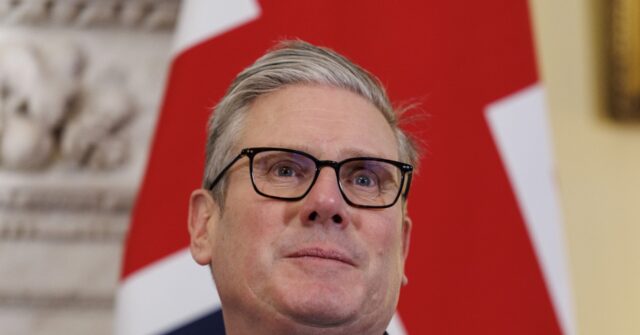The UK economy has experienced stagnation in its growth, with recent reports indicating zero growth between July and September, coinciding with the leadership of Sir Keir Starmer’s Labour government. This disappointing trend is compounded by rising inflation, which has reached its highest level in eight months, as well as unexpected contractions in economic activity in October. The situation has prompted serious concerns amongst economists, some of whom predict that the UK may be on the verge of a recession. The prevailing sentiment, as echoed by the Confederation of British Industry (CBI), is one of trepidation, with their latest survey indicating that the economy is potentially facing severe challenges.
The Office for National Statistics (ONS) has revised previous estimates, revealing that instead of the previously reported 0.1 percent growth, the UK economy has stagnated. Significantly, real GDP per head has fallen by 0.2 percent in the third quarter of 2024, marking a decline from the same quarter a year prior. This dismal performance has placed the UK alongside Italy as the lowest performers in terms of growth within the G7 nations during this timeframe. Such stagnation is particularly alarming for policymakers and stakeholders, who are keenly aware of the potential long-term ramifications on employment, investment, and overall economic stability.
Various sectors of the economy have showcased lackluster performance, particularly bars, restaurants, legal firms, and advertising agencies. Economic statistics director Liz McKeown pointed out that the household saving ratio has seen a minor decline, albeit remaining relatively robust in comparison to historical standards. Furthermore, the data shows that real household disposable income per capita has not seen any growth, suggesting that households are facing pressures that could limit their spending and investment capacity. This static economic environment raises concerns about the potential for a contraction in consumer confidence and a subsequent downturn in consumption.
The stagnation in the UK economy is indicative of broader structural issues that may be hindering growth. Several factors, including global economic conditions, rising input costs, supply chain disruptions, and the potential impacts of Brexit, are all influencing this landscape. Recent inflationary pressures are likely a contributing factor to household spending constraints, which could further exacerbate the downward trend in economic performance. Policymakers are thus confronted with the challenge of navigating these complexities while attempting to bolster economic activity and restore growth momentum.
In light of these economic challenges, the role of government intervention becomes critical. There is an increasing call for strategic measures aimed at stimulating the economy, addressing inflation, and supporting key sectors likely to drive future growth. This could entail targeted fiscal policies, investment in infrastructure, and initiatives to enhance productivity across various industries. Without such interventions, the risk of tipping into recession and experiencing more prolonged economic stagnation looms large, raising questions about employment, investment confidence, and the overall wellbeing of households in the UK.
As the situation develops, close scrutiny of fiscal and economic policies is necessary to gauge their effectiveness in reversing the current trends. Economists and business leaders alike are advocating for coherent and proactive strategies to tackle the stagnation and its underlying causes. Only by understanding the intricacies of the current economic landscape and implementing informed policies can the UK hope to regain its economic footing and achieve sustainable growth in the coming months and years. The road ahead may be fraught with challenges, but there remains an imperative to act decisively in shaping a resilient economic future for the nation.

